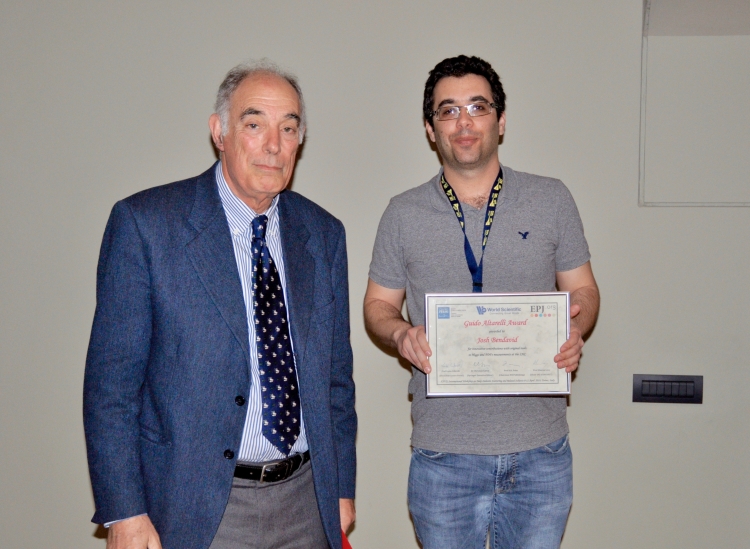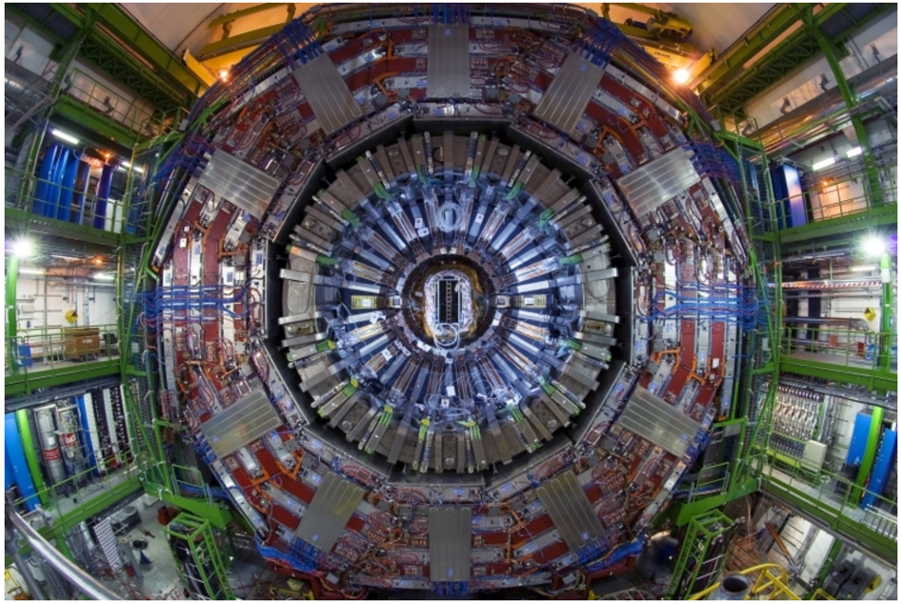
This year the 27th conference on Deep Inelastic Scattering and Related Subjects (DIS2019), is being held in Torino. As a part of the conference, the "Altarelli Prize" is awarded to a person with research experience in the fields covered by the DIS conference series.
The prize honours the memory of Guido Altarelli, a pioneer in QCD (Quantum Chromodynamics), an outstanding physics communicator, and a mentor and supporter of junior scientists.
This time the award was given to two people: Jonathan Gaunt and Josh Bendavid. Josh is a member of CMS and received the prize in recognition of his "innovative contributions with original tools to Higgs and PDFs (Parton Density Functions) measurements at the Large Hadron Collider".
Read our interview with him below:
How did you feel once you were awarded the Altarelli prize?
Josh Bendavid (JB): I had the pleasure of meeting Guido Altarelli at the Moriond Electroweak conference several years ago, and I was very honored to have been firstly considered and second selected for this prestigious award.
What inspired you to start a career in physics?
JB: Since I was a child I was always interested to know how things work, from technology, to the world around me. I pursued a career in physics in order to contribute towards finding answers to the important unanswered questions about the physical world and in particular in experimental high energy physics in order to address the most fundamental questions.
Can you explain a bit about the field you are working on right now?
JB: I am an experimental high energy physicist working on the CMS experiment at the LHC, and in particular with a current focus on precision measurements of the particles and processes predicted by the Standard Model and produced in large numbers at the LHC. In particular I am presently interested in the measurement of the W mass, a fundamental particle in the Standard Model which is produced in larger numbers at the LHC than ever before, providing the opportunity to measure it's properties with unprecedented precision, but requiring a detailed understanding of theoretical aspects including Quantum Chromodynamics (QCD) and the structure of the proton.
Why is this field exciting to you?
JB: In addition to direct searches for new particles, precision measurements of Standard Model processes at the LHC can provide new stringent tests of the Standard Model (SM), and act as indirect searches for new physics in deviations from the Standard Model predictions.
What does your ideal workday look like?
JB: Doing science in a large collaboration means that there are a number of different tasks and projects to be followed in parallel. There is also the balance between the research I can do myself, and that which is done advising students and coordinating broader analysis efforts (I am currently Standard Model Physics convener in CMS).
In an ideal day, I would make substantial progress in my own work on analysis methods and tools for precision SM measurements, advise my students towards progress in their associated project, participate in an interesting physics discussion and give constructive advice and direction to other analysis teams working on similar measurements, and make useful contributions towards the development of reconstruction algorithms and future detector development.
In reality, the above might constitute a particularly productive week (or several), but advances on any of the above make for a very satisfying day.
What is your goal going forwards?
JB: I would like to continue working on precision measurements at the LHC as we accumulate more data through future runs, with a continued interest on analysis methods and tools, the interplay between theoretical predictions and experimental measurements, and the use of machine learning in high energy physics. In the future, I am also interested in the evolution of the field in these areas in the context of future collider projects like the Future Circular Collider (FCC).
The prize is named after Guido Altarelli known for his contribution to QCD (Quantum Chromodynamics), but also for being an outstanding physics communicator. How do you feel this relates to you?
JB: I have always considered it very important to be able to explain to my friends and relatives outside of physics, and to the general public, what we are doing and why we are doing it. Public interest in high energy physics of course increased dramatically with the start of operations at the LHC and especially with the discovery of the Higgs Boson. For example I participated in a Google+ Hangout about the Higgs boson discovery organized by Google and the Guardian. Having been involved in the Higgs search and discovery myself, I have very much enjoyed the opportunity to participate in outreach efforts, explaining not just what we do as physicists and why, but also a little bit about the day to day process, meetings, discussions, internal review, etc, which is interesting in its own right, and not necessarily very well known outside of our field.
- Log in to post comments

